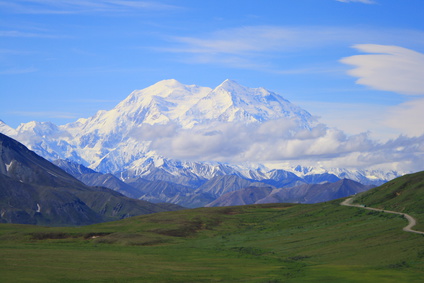
KOTZEBUE, Alaska – The White House announced that it would launch a $4 million initiative to speed the development of renewable energy in remote Alaskan communities, part of a package of new programs aimed at reducing fossil fuel use and countering climate impacts in the region of the world that is warming the fastest.
Alaskans paid an average price of 18.12 cents per kilowatt hour of electricity in 2013, according to federal data – second only to New York and Hawaii – but in this part of Alaska, residents pay at least 40 cents a kilowatt hour, even after receiving a state subsidy aimed at making energy costs more equitable across Alaska.
The renewable energy funding was one of several initiatives the administration unveiled Wednesday under the umbrella of helping tribal and rural communities cope with climate change and other challenges. White House officials said the Denali Commission, an independent federal agency since 1998, would serve as the federal coordinator for building climate resilience in rural Alaska, and would provide $2 million to support voluntary relocation efforts for vulnerable villages.
The Agricultural Department said that it will provide $17.6 million to bolster health operations in more than a dozen communities, as well as $240,000 to improve water and sewage treatment operations in rural Alaska.
The Kotzebue Electric Association has established 19 wind turbine towers, each 250 feet tall, roughly four miles from town. They now provide 20 percent of Kotzebue’s electricity and save it 250,000 gallons of diesel fuel a year. The association also manages wind projects for neighboring communities: “We are very pleased to see the president’s focus on rural energy solutions,” said Brad Reeve, the association’s general manager. “Accelerating Rural Alaska’s integration of renewable energy sources like wind and solar will increase the sustainability of all Arctic communities.”
The Northwest Arctic Borough, which helps govern not just Kotzebue but also 10 smaller surrounding communities, has also provided a grant to expand solar power in the region and to help run their water and sewer services. The grant has established a 20-KW project in Kotzebue and 10-KW solar projects in nine of the surrounding villages.
Microgrids proliferate in Alaska because its rural communities are so far-flung. Alaska boasts more than 200 of them, according to Navigant Research, more than any other state. But diesel energy remains dominant: Only 70 of the microgrids have renewable power as part of their supply.
Source: newsminer.com
